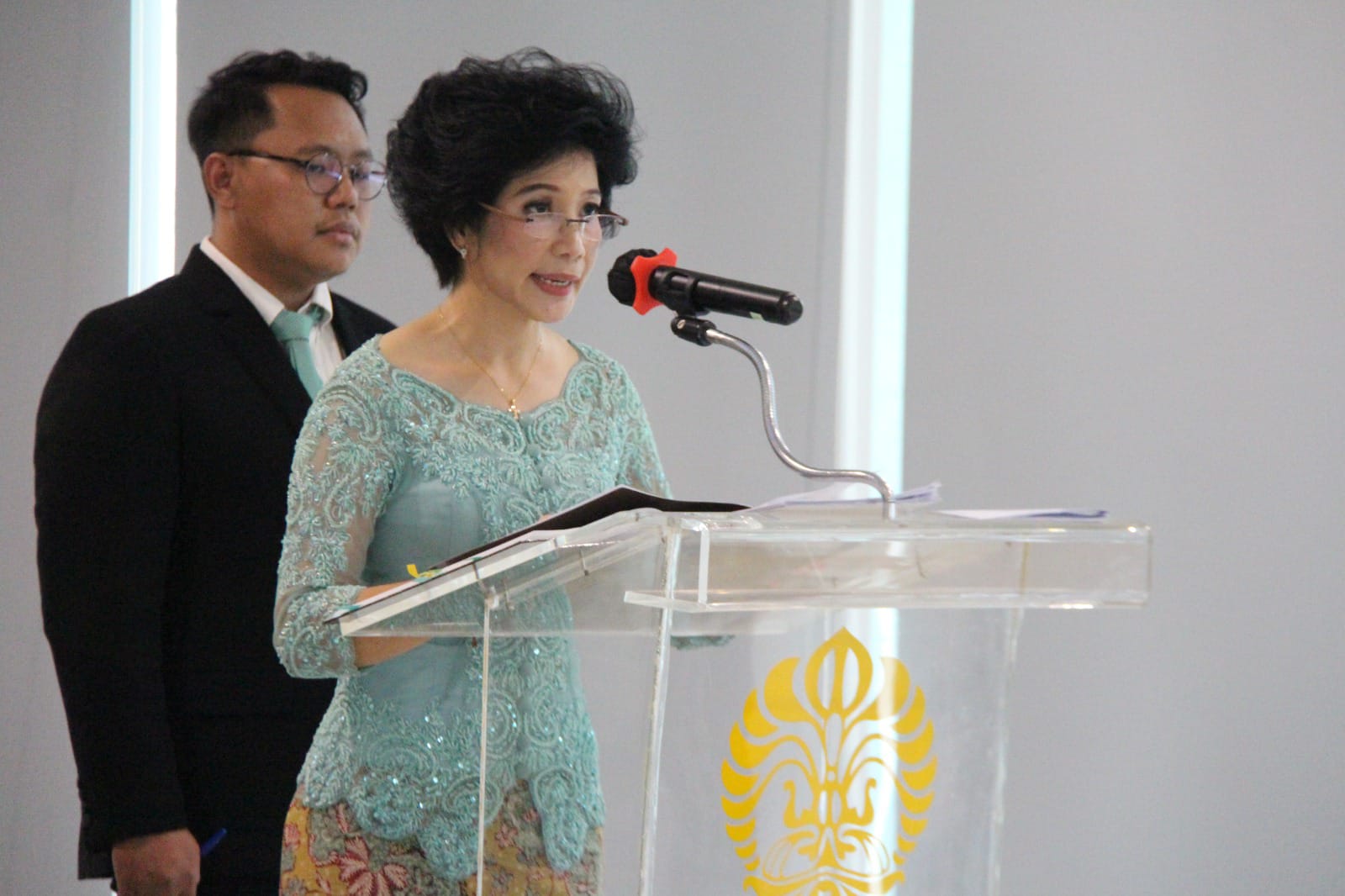Depok, July 4th 2023. All this time, ginger is known as a medicinal plant that has advantages as an antioxidant, anti-inflammatory, anti-obesity, anti-diabetic, antimicrobial, anti-cancer, neuroprotection, cardiovascular protection, and protection against respiratory disorders. Seeing these benefits, a student in the Doctoral Program in Biomedical Sciences, Faculty of Medicine, Universitas Indonesia (FKUI), dr. Shirly Gunawan, Sp.FK, developed a research on the effect of the compounds in ginger as a natural ingredient in the treatment of Metabolic Syndrome (MetS).

MetS is a group of metabolic disorders that are closely related to an increased risk of heart disease and type 2 diabetes mellitus (T2DM). A person is said to suffer from MetS if they experience at least three of the five conditions, namely high blood pressure (hypertension), abnormal levels of fat in the blood (dyslipidemia), high triglyceride levels (hypertriglyceridemia), high blood sugar levels (hyperglycemia), and obesity with accumulation of fat in the abdomen.
according to dr. Shirly, the global prevalence of MetS is increasing. Based on data from the National Health and Nutrition Examination Survey (NHANES), of the 35% of the adult population in the United States, 50–60% of them experience MetS. In China, MetS is experienced by approximately 58.1% of the population aged >60 years. Meanwhile, in Indonesia, the prevalence of MetS reached 23%. Unfortunately, the high prevalence of MetS is not matched by adequate treatment.
“Until now, there hasn’t been a single medicine to treat MetS. In general, patients with MetS receive treatment that is polypharmacy (concurrent use of several drugs) which affects patient compliance in treatment. This then prompted us to analyze the modulating effect of one of the active compounds contained in ginger, namely 6-gingerol, on MetS with a focus on the endoplasmic reticulum stress or ER stress pathway,” said dr. Shirly in her doctoral promotion session, on Wednesday (14/6), in the Teaching Theater Room, 6th floor, IMERI Building, FKUI Salemba.
dr. Shirly assessed that the ER stress pathway plays an important role in the occurrence of MetS. ER stress is a condition of accumulation of unfolded or misfolded proteins in the lumen of the endoplasmic reticulum (ER). This condition will activate the Unfolded Protein Response (UPR) signaling pathway with the main target being the liver, adipose tissue, intestine, and skeletal muscle. UPR is able to relieve ER stress, maintain ER balance, and increase cell adaptability and endurance. If a cell can face ER stress, it will survive. Conversely, if cells are unable to cope with ER stress, cell dysfunction and death will occur, resulting in metabolic disorders, such as T2DM, dyslipidemia, and obesity.
Using the male Sprague-Dawley rat as a test object, dr. Shirly administered 6-gingerol to 5 groups of rats for 8 weeks. Administration of 6-gingerol at a dose of 100–200 mg/kg/day showed the ability to modulate the ER stress pathway in the MetS rat model. These compounds can reduce body weight, lower fasting blood sugar levels, and improve insulin resistance. Thus, 6-gingerol has the potential to become a new drug candidate for metabolic disorders.
The research written in a dissertation entitled “The Effect of 6-Gingerol Modulation in the Mouse Model of Metabolic Syndrome: Focusing on the Endoplasmic Reticulum Stress Pathway” earned dr. Shirly her doctorate degree in Biomedical Sciences at FKUI with a cumlaude GPA of 3.99. Prof. Dr. dr. Frans Ferdinal, M.S., as the co-promoter hoped that the results of this study can become the basis for further research, especially regarding clinical trials of 6-gingerol as a drug substance for metabolic syndrome. This research will be useful for reducing polypharmacy and increasing patient compliance with the syndrome.



